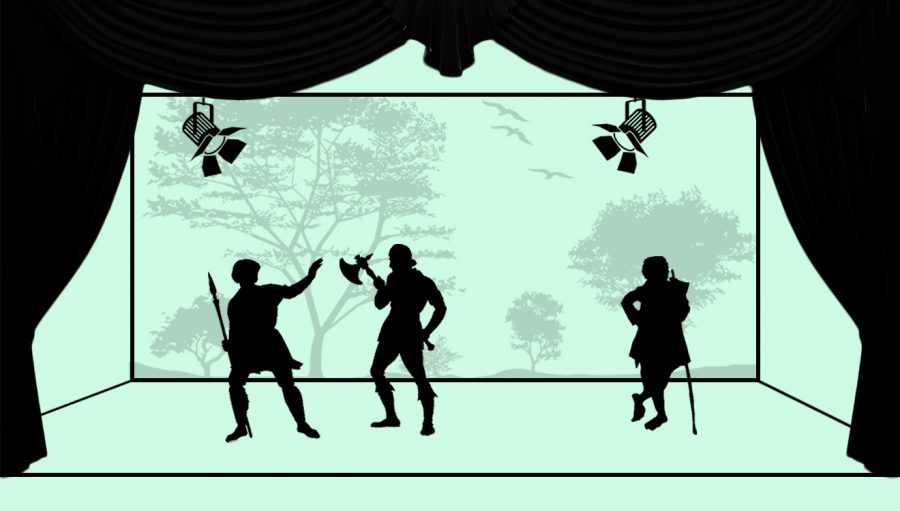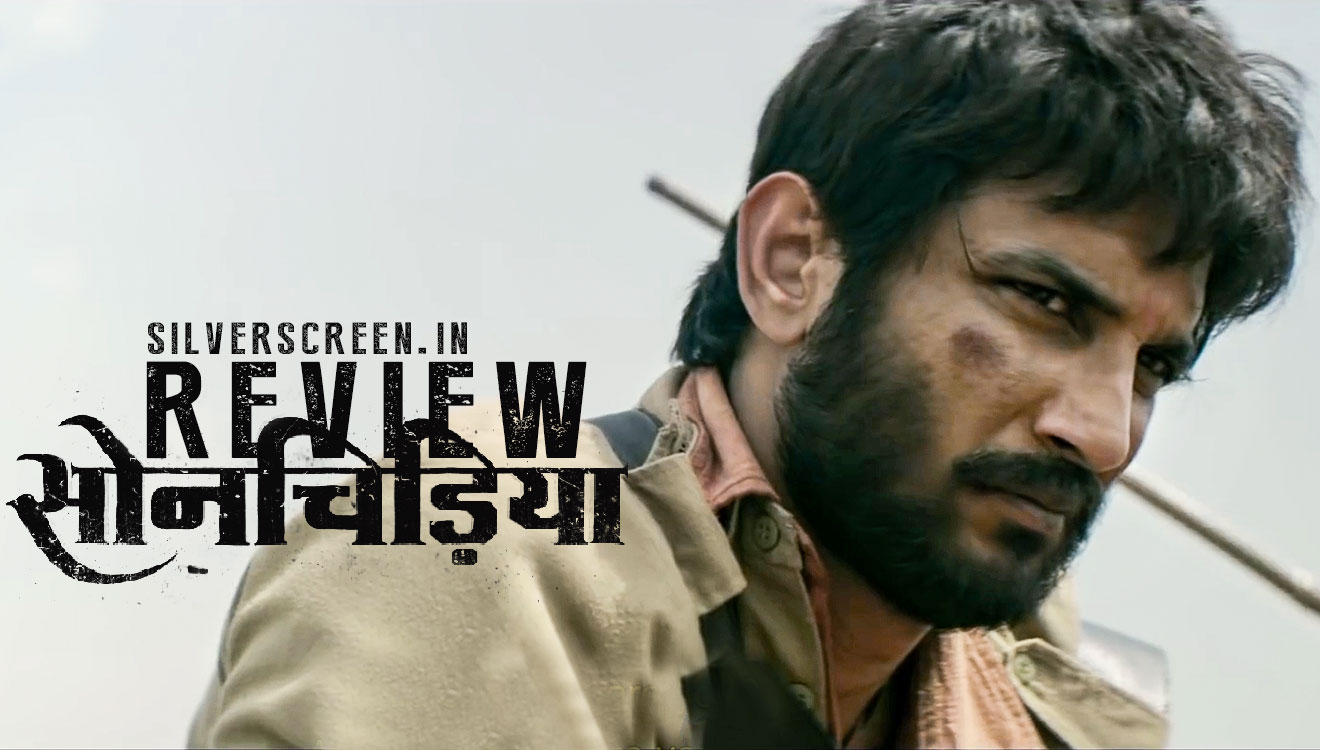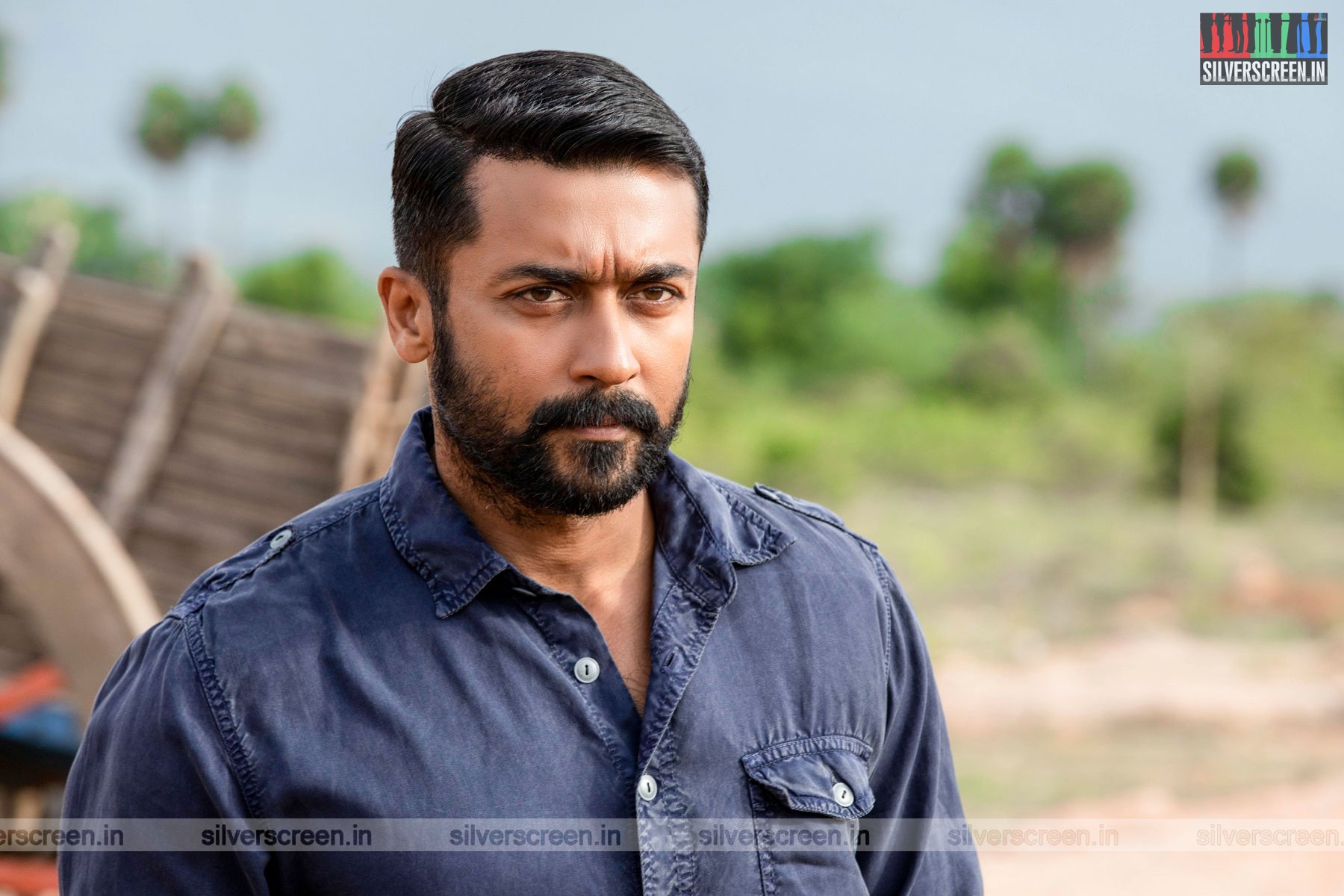On World Actors’ Day, a look at what goes on inside acting workshops that are helmed by instructors who impart unique lessons, and who vouch for theatre over cinema
“Acting is not just an art. Adhu oru thavam [it’s a penance],” booms the acting teacher in Karthik Subbaraj’s Jigarthanda, played by Guru Somasundaram. Poised, with a serious demeanor and a life dedicated to acting, he instructs the gangster and wannabe actor, Assault Sethu (Bobby Simha) and his men to attend lessons at five in the morning. When they protest, he changes the timing to four AM.
In reality, acting or drama schools aren’t too far from what we see in Jigarthanda. They are intensive, emotionally-draining, and often time-consuming, owing to the fact that acting, as easy as it looks, cannot be learnt in a few days. Or months.
Aadhira, who runs Naveena Koothupattarai in Valasarvakkam, runs a stringent yet meticulous enough schedule at her acting school. Focusing on movements, expressions, and paying tribute to the environment in almost all her works, Aadhira believes that one has to let go of inhibitions to get into acting.
“You are born with shackles. You are expected to take part in the drudgery of life. You’re born, nurtured, expected to study, finish school, start working, get married, have kids, work more, get old, retire, and then, you die. You don’t really live with that life. You form blocks inside you with each role in life you take part in. And these blocks continue to build up,” she explains.
That is where she steps in. “There are so many blocks from ages 1 – 25, and it all starts with subconscious fear. Fear, shyness, and then voice. Parents tell us to keep quiet or say something quietly when we’re younger. But here, we focus on voice more. We never use the mic,” she asserts confidently. “Human body has so many aspects and we need to use them. It just lies wasted – eyes, breath, voice…these contribute to the nava rasas. All these nine emotions have variations. Anger towards a person, thing, society we focus on these aspects.”
It’s really method acting here, there’s no place for anything superficial, she assures me.
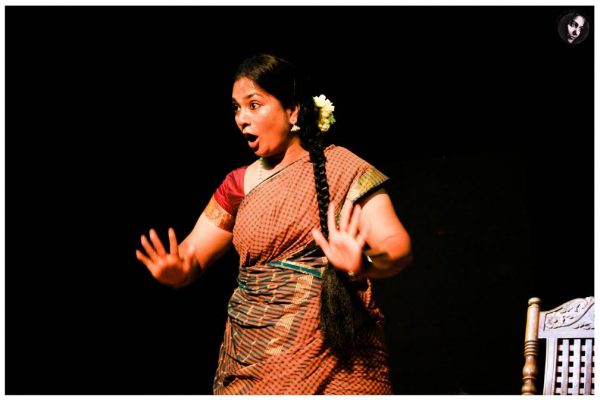
With over 15 years of experience, a lot of her teachings combine modern and folk.
Entering her school, I hear her students, the Vaayushastra troupe, talk about their upcoming performance. All aeronautical engineers, they discuss cardboards, thermocols, and other material that could ‘fly’ on stage.
The stage – where practices and performances take place – is located in a building on a narrow yet perpetually noisy road in Valasarvakkam. As big as a terrace with stage curtains, lights, and also surprisingly cooler despite the scorching heat, it has nurtured several theatre and a few silvers screen artistes.
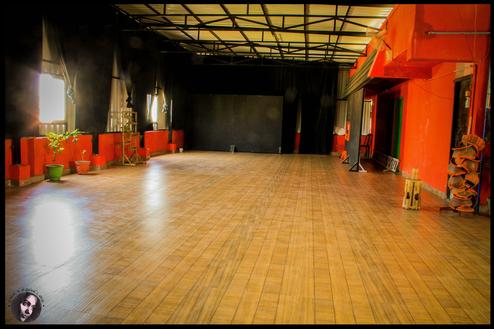
“Actors tend to get isolated from the society, and the most honest people you’d ever meet are actors. But, at the same time, there are so many fake actors,” she points out.
Another harsh reality is the fact that cinema has a better economy than theatre.
“Cinema is a business centre, really. Take Baahubali for instance. Everyone’s focusing on the business. A lot of money is invested and a lot of money is earned. Theatre lacks that, we barely have an economy and there’s a lot of ego clashes,” she says. Add to that, there are embellishments in cinema that are often forgone in theatre.
Among modern day actors, Aadhira finds Vijay Sethupathi among the best. “His acting comes close to Kamal Haasan’s. He’s a natural and doesn’t resort to fake acting or hamming. Apart from them, I don’t think anyone else is doing a good job,” she says.
Her favourite example for bad acting is Vikram Prabhu.
“Ask him to attend one of my acting workshops and you’ll see how I rip him apart. He’s so wooden. Same expression for everything. It’s pathetic,” she laughs.
Her acting school has no specific batches or seasons when admissions start. “We like to pay attention to every individual and hone their skills accordingly. With a batch, it’s difficult to improve,” she says. And the best part about her classes – no specific time really. “But when you’re in my school, there can’t be endless time spent on phone conversations. I tend to go on talking, but they all stay,” she smiles.
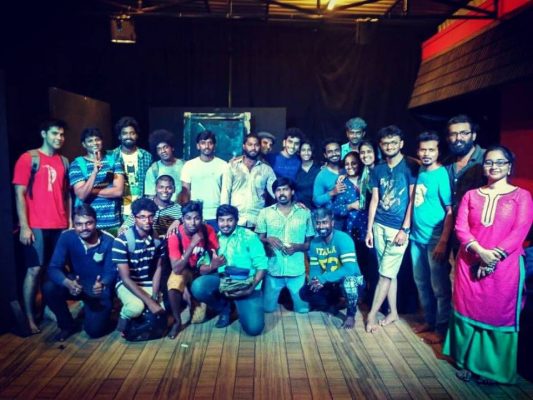
For three months of acting lessons, Aadhira charges Rs 30,000. More details at www.naveenakoothupattarai.com
*****
Entering Jayarao’s Theatre Lab is like entering another realm. Mirrors and silence. Posters of popular actors, theatre masks, and motivational sayings adorn the school’s walls. A group of boys walk around. Sometimes in circles, sometimes waddling like ducks.
It’s a form of movement exercise, I learn. It’s the 10 AM class, and the group faces themselves in front of the mirrors and practice expressions. Jayarao, the man behind the school, with his Gandalf-like beard, sports a smile. An intelligent smile; someone who seems to know everything.
Essentially a theatre artiste and a social worker, Jayarao is also a great conversationalist. “I don’t give you actors. I give you performers,” he declares. With several directors depending on him to hone their actors’ skills, Jayarao’s students form an impressive list of known faces from the industry. Srikanth, Atharvaa Murali, Reshmi Menon and Aadhi are some of his past students. His current students, or the 40th batch, are also upcoming actors, while at the same time, pursuing different careers.
“I believe that as performers, they need to bear in mind four things – information, recreation, social relevance, and responsibility. Actors need to function on those four ideologies,” he says.
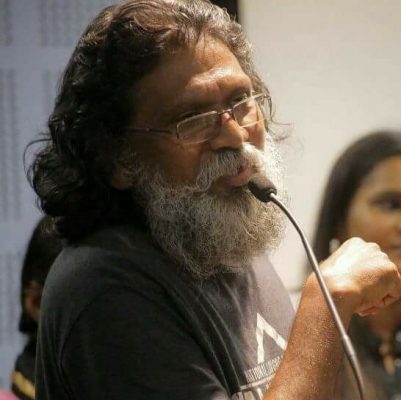
via Theatrelab Actors Workstation FB page
Jayarao has decades of experience in theatre. He was also associated with West Bengal-based dramatist Badal Sircar. “Less dialogue, more performance” is something he implements in his teachings.
“I’d say an actor has no identity. It’s the performers who make an identity. You can make out who an actor is the minute he/she enters the room. The way they stand, they give off vibes. But a performer is more than that,” he observes.
Recommended
His batch comprises of former software engineers, physiotherapists, upcoming actors, students, and what not. They’re passionate, he says, just like the five kinds of people who are truly passionate about performance. “Writers, painters, musicians, dancers, actors. They are the ones who truly love the world and make the world a better place,” he says, pointing to the numerous photos and quotes by famous people of these five professions.
Employing a combination of Zen and Kabuki Theatre, Jayarao also tries to cultivate a reading habit among his students. “There’s so much to read and learn! Reading helps in changing yourself within, sharpening your skills and method of storytelling. I tell them to read anything, anyone. And present it in the class.”
Vikram, a student, tells me he chose Fyodor Dostoevsky’s Shadows. Another had decided to tell his own story in a different style. “He knows what we’re good at. But first, when we begin, he wants us to identify our shortcomings. We all work on it together, even if it takes a long time,” adds another student.
The 40th batch’s typical class:
On the kind of acting that currently takes place in cinema, Jayarao rues that there are many who are born with a silver spoon. “It’s dominated by bad actors. That’s why we end up hearing about so many struggling actors. [If] You have money and contacts, and you contribute to this idiotic business. Good talent goes wasted.”
His classes happen in the morning and evening for three months. There are tests too, but not the nerve-wracking ones back in school. “Towards the end of three months, I would’ve conducted three tests. They’re all to do with your comfort and how much you challenge yourself. I want to hear the way you tell your story, your way, and convince me. And finally, everybody puts in a performance.”
More details at theatrelabchennai.com
*****
Illustration by Dani Charles.
